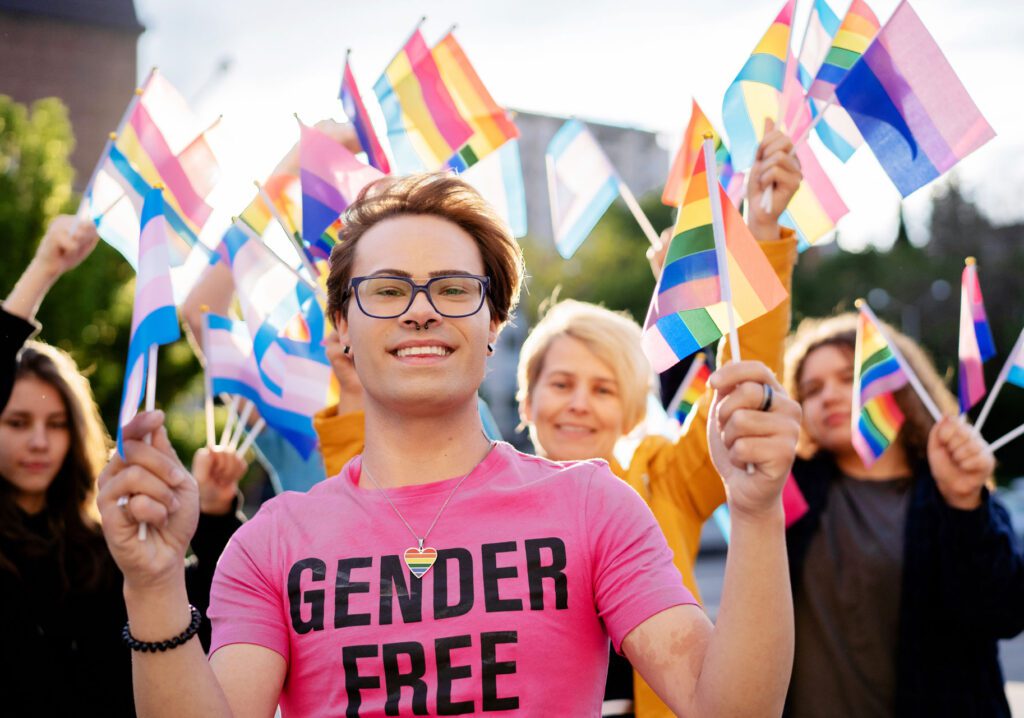The impact of discrimination

Life has improved dramatically for LGBTQ+ educators in recent decades. Many now live and work in settings where diversity is not only accepted but celebrated.
Yet many of the hard-won rights of LGBTQ+ individuals and people of color are once again under attack, and schools are prime targets. Discriminatory policies, which prohibit classroom discussions about sexual orientation or gender identity, are silencing LGBTQ+ voices and erasing LGBTQ+ identities. Meanwhile, policies that harm transgender children and Rainbow families are being introduced and implemented at an alarming rate.
LGBTQ+ discrimination is a growing issue in schools—and it exacts a terrible toll. On a daily basis, LGBTQ+ educators may:
- Be subjected to multiple forms of prejudice such as racism and anti-LGBTQ+ hate
- Experience in-person and online harassment
- Be prohibited from providing the support that LGBTQ+ children and families desperately need
- Live in a near-constant state of hypervigilance, self-censorship and/or fear
- Feel demoralized by the constant media spotlight on hate groups, hate speech and acts of violence against LGBTQ+ individuals
- Be disciplined or fired for mentioning a partner, marrying a partner, talking about a honeymoon, engaging in inclusive teaching practices, or explaining why they wear rainbow colors
How does discrimination affect pre-service teachers? Many pre-service teachers are concerned about the opposition that they may face as they attempt to create affirming spaces for LGBTQ+ children, families and colleagues and implement anti-bias practices. LGBTQ+ pre-service teachers may have their own concerns. Will they be accepted and supported by their colleagues or marginalized?
Too often, these issues are not addressed in teacher education programs, leaving teachers unprepared to navigate these complex issues when they enter the field. Are you a teacher educator? You can help create lasting change by supporting your LGBTQ+ students and giving the teachers of tomorrow the knowledge and skills they need to create inclusive early childhood communities. Download this pdf checklist to find out how
How does discrimination affect children? Children who experience LGBTQ+ discrimination have higher levels of depression and anxiety, more negative self-concepts, and alarmingly high rates of suicide. In school communities where teaching about LGBTQ+ issues is forbidden, bullying and homophobic or transphobic language are more prevalent, and children who identify as LGBTQ+ have poorer academic and social-emotional outcomes.
Ready to put your new knowledge into action? Find out how